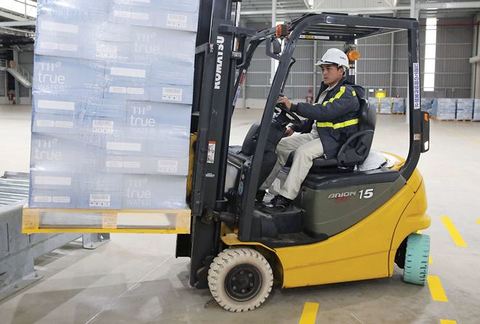
In 2019, foreign direct investment (FDI) in Viet Nam will be significant thanks to new-generation free trade agreements that have already been signed or are under discussion with various partners. — Photo tinnhanhchungkhoan.vn
In 2019, foreign direct investment (FDI) in Viet Nam will be significant thanks to new-generation free trade agreements that have already been signed or are under discussion with various partners.
“Especially in the context of the trade war between the US and China, investment flows into Viet Nam will be stronger next year,” Nguyen Van Hung, chairman of the Binh Duong Province –based Becamex IDC, was quoted as saying in Viet Nam Investment Review (Dau tu) newspaper.
“Our company has carried out investment promotion for a long time in many countries like Singapore, Japan, South Korea, and the US and Europe, and FDI will strongly flow into Viet Nam and Binh Duong Province as a result.”
At last month’s Horasis Asia Meeting, many foreign corporations had signed memorandums of understanding with Becamex IDC to invest, he revealed.
Nguyen Thanh Truc, director of Binh Duong Province’s Planning and Investment Department, said: “Relevant authorities and industrial park infrastructure developers in Binh Duong Province will promote trade and review demand by enterprises to expand to create the most favourable conditions for foreign enterprises.”
Binh Duong attracted around US$1.6 billion worth of FDI this year, down from $2.8 billion in 2017.
“This year, there were no big FDI project, and registered capital of each project was also low,” Truc said.
The biggest project was worth $135.2 million by US fund Warburg Pincus.
The neighbouring Dong Nai Province, another locality which has traditionally attracted a lot of FDI, also reported $1.8 billion worth by the end of November.
The biggest project was by Singapore’s KCC Company and worth $60 million.
Le Hoai Quoc, head of the Sai Gon High Tech Park, said a $500 million battery project by a US company to supply Tesla would not be able to complete procedures this year and would instead begin production next year. — VNS